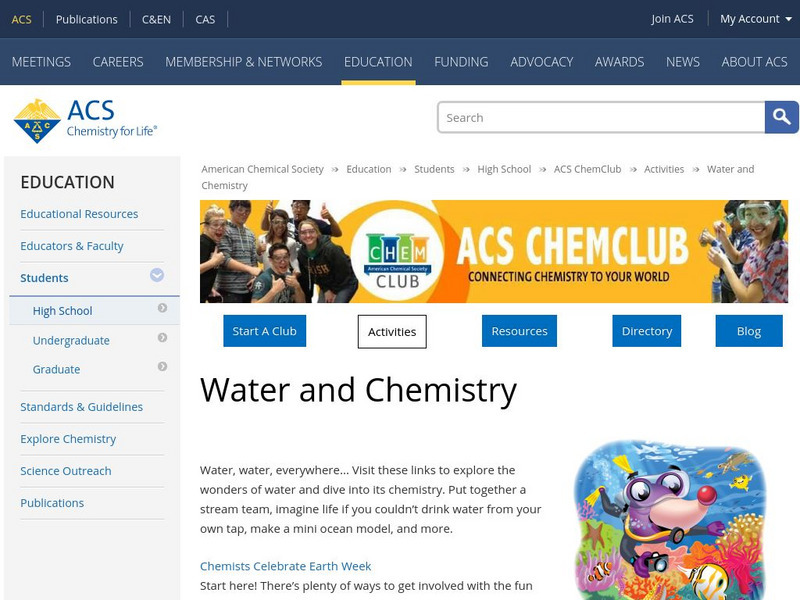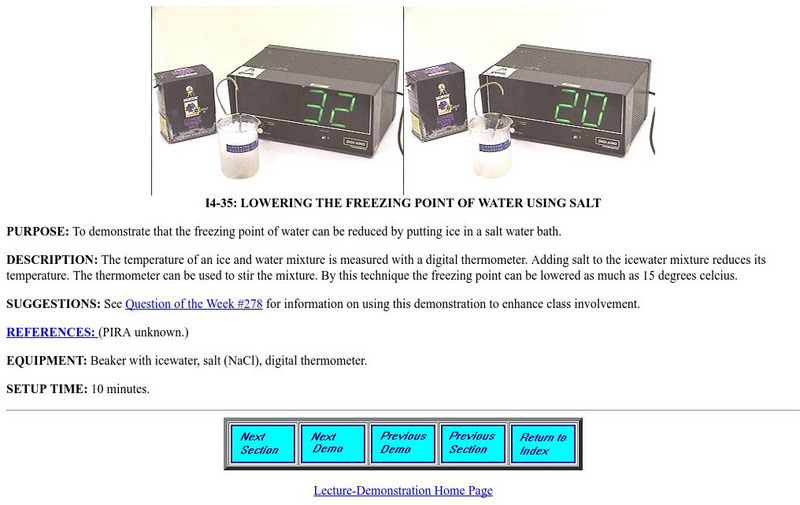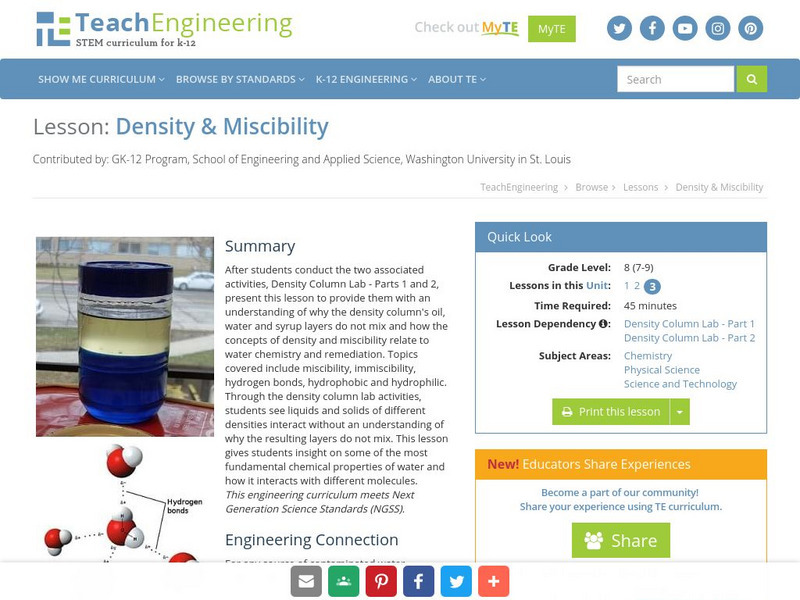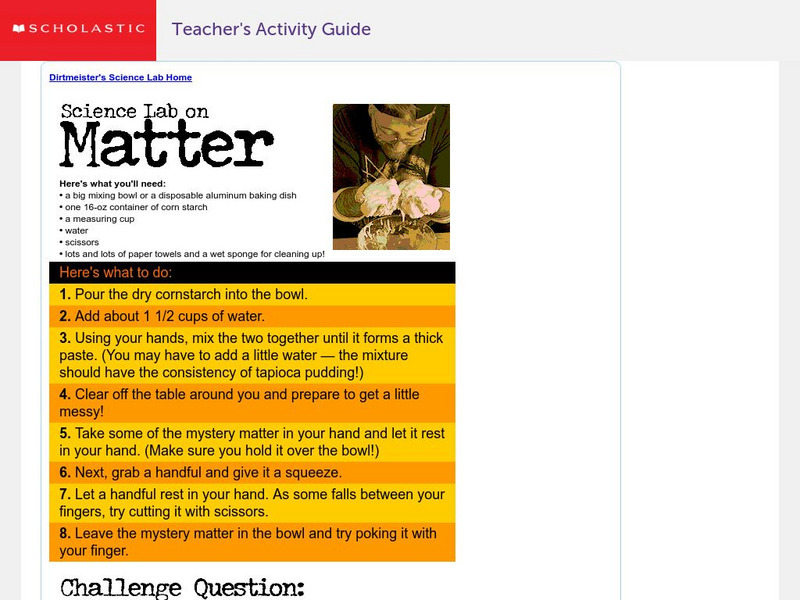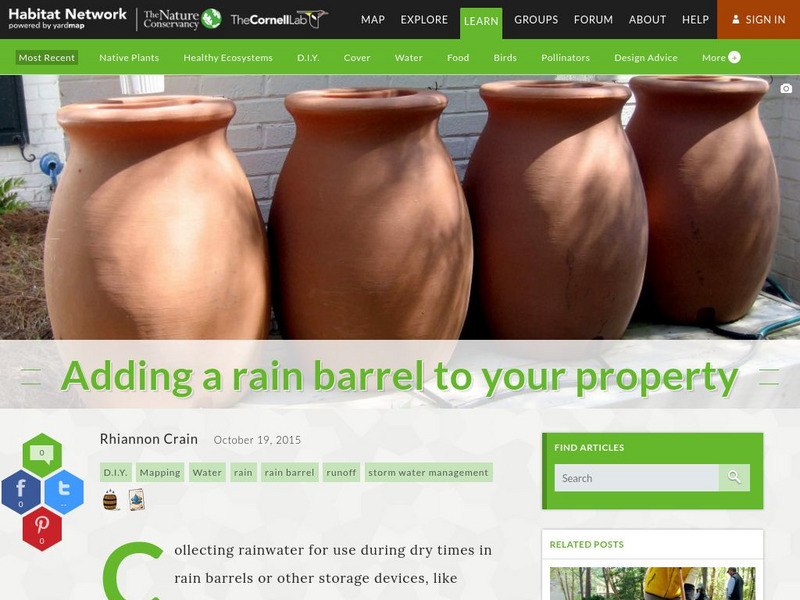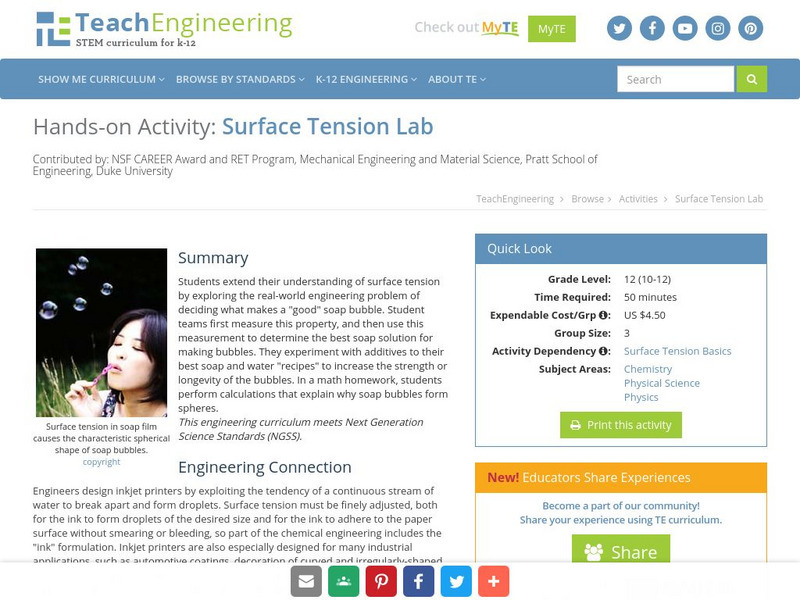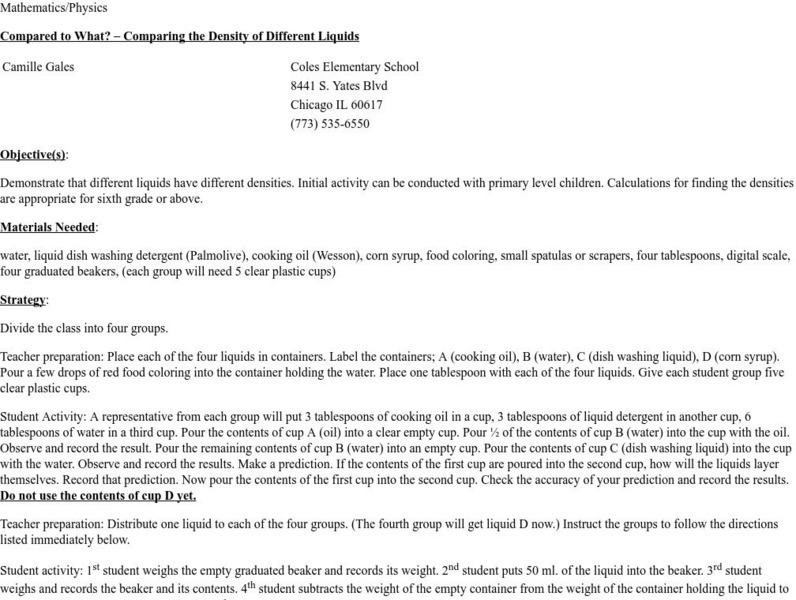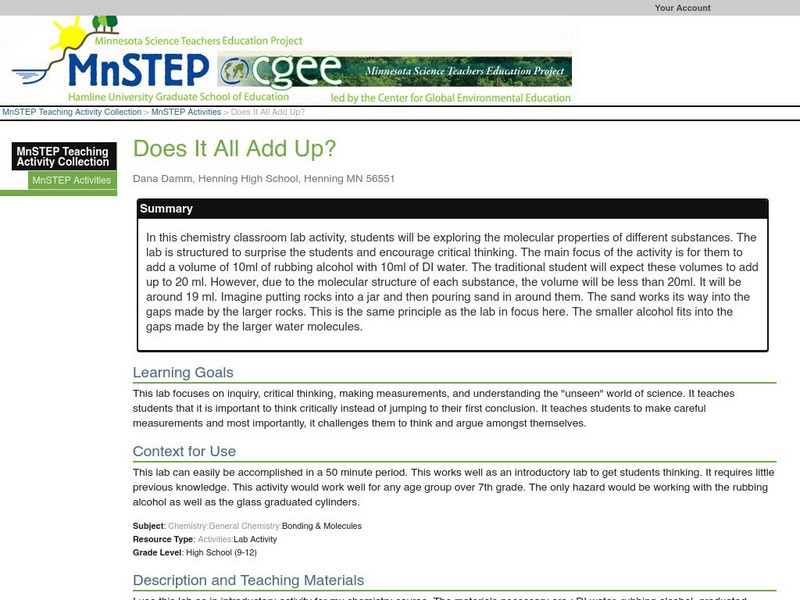Hi, what do you want to do?
Curated OER
Corrosion & Rust
Students examine how and when rust and corrosion occur. For this corrosion lesson students complete an experiment to see why metals rust.
Curated OER
Warm and Cold Air
Learners examine what happens to air when it is heated or cooled. They conduct an experiment using bottles and balloons, record and discuss their observations, and write a hypothesis.
Curated OER
Acid Rain
Learners create acid rain using carbonic, nitrous, nitric, and sulfurous acids.
Curated OER
Hess's Law
In this reactions worksheet, students use Hess's Law to calculate the heat gained or lost by different reactions. Students determine if the reaction would occur spontaneously at a given temperature. This worksheet has 9 problems to solve.
Curated OER
Enzymes
Tenth graders observe enzyme activity. They discuss the relationship between drug use and enzyme activity.
Curated OER
CO Buildup City
Pupils conduct a controlled experiment. They collect data in an organized manner. Students analyze data to reach a conclusion and communicate findings. They explain how city size, temperature, and pollution is related to the air quality.
Curated OER
Yo-Yos, Tow-Yos and pH, Oh My!
Young scholars explore how hydrothermal vents are formed and where they are located on the ocean floor. They study how scientists use CTDs to locate hydrothermal vents.
American Chemical Society
American Chemical Society: Explore Chemistry: Water and Chemistry
Explore water's unique properties in the activities here. Includes ideas for starting a chemistry club, ideas for Earth Day, articles, and videos.
Science Education Resource Center at Carleton College
Serc: Investigating Water Molecules: Adhesion and Cohesion
An activity where students observe the properties of water. During this lab, students will see the nature of waters property by observing both the adhesive and cohesive properties.
University of Maryland
Lowering the Freezing Point of Water Using Salt
A page from the University of Maryland Physics Lecture Demonstration Facility. Provides directions for a teacher demonstration of the effect of an ionic solute upon the freezing point of water. Shows apparatus and set-up; provides...
TeachEngineering
Teach Engineering: Density & Miscibility
After students conduct the two associated activities, Density Column Lab - Parts 1 and 2, present this lesson to provide them with an understanding of why the density column's oil, water and syrup layers do not mix and how the concepts...
PBS
Pbs Learning Media: Density Lab
Use water displacement and a mass balance to determine the density of various objects in this interactive simulation.
Scholastic
Scholastic: Dirtmeister's Science Lab: Matter
Students will use water and cornstarch to make a mystery matter, and then discuss what happens when different energy is applied.
Science Education Resource Center at Carleton College
Serc: Mn Step: Sponge Lab: Experimenting With Absorption
Students investigate the properties of synthetic and natural sponges in this activity, to determine the capacity of each to absorb water. Afterward, they discuss other questions they have about sponges, and complete an assessment in...
Cornell Lab of Ornithology
Habitat Network: Adding a Rain Barrel to Your Property
Learn about rain barrel basics, and find inspiration in other people's incorporation of this tool into a site.
TeachEngineering
Teach Engineering: Surface Tension Lab
Students extend their understanding of surface tension by exploring the real-world engineering problem of deciding what makes a "good" soap bubble. Student teams first measure this property, and then use this measurement to determine the...
PBS
Pbs Learning Media: What Is a Wave?
This interactive activity adapted from the University of Utah's ASPIRE Lab provides an overview of the characteristics and properties of various types of waves, including light waves, sound waves, and water waves.
Science and Mathematics Initiative for Learning Enhancement (SMILE)
Smile: Comparing Liquid Density
Because different liquids have different properties, density also differs. In this lesson from the Illinois Institute of Technology, students will calculate densities of water, dish-washing detergent, cooking oil, and other liquids.
Science Education Resource Center at Carleton College
Serc: Does It All Add Up?
In this chemistry classroom lab activity, students use critical thinking to investigate the molecular properties of different liquids: rubbing alcohol and water.













